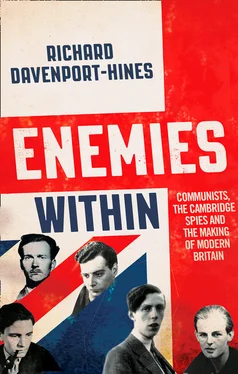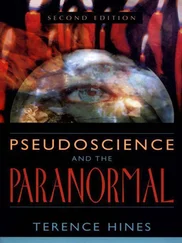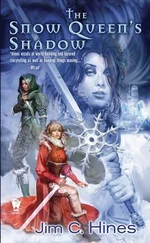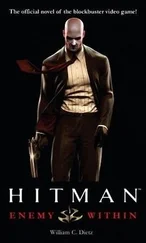– Andrew Cohen, as Governor of Uganda, shares a dais with the Kabaka of Buganda. (Terence Spencer/The LIFE Images Collection/Getty Images)
– Philby’s early associate Peter Smolka. (Centropa)
– Alexander Foote, who spied for Soviet Russia before defecting to the British in Berlin and cooperating with MI5. (Popperfoto/Getty Images)
– Igor Gouzenko, the Russian cipher clerk who defected in 1945. (Bettmann/Getty Images)
– Donald Maclean perched on Jock Balfour’s desk at the Washington embassy, with Nicholas Henderson and Denis Greenhill. (Popperfoto/Getty Images)
– Special Branch’s Jim Skardon, prime interrogator of Soviet spies. (Associated Newspapers/REX/Shutterstock)
– Lord Inverchapel appreciating young American manhood. (Photo by JHU Sheridan Libraries/Gado/Getty Images)
– A carefree family without a secret in the world: Melinda and Donald Maclean. (Photo by Keystone-France/Gamma-Keystone via Getty Images)
– Dora Philby and her son in her Kensington flat. (Photo by Harold Clements/Express/Getty Images)
– Philby’s wife Aileen facing prying journalists at her front door. (Associated Newspapers/REX/Shutterstock)
– Alan Nunn May, after his release from prison, enjoys the consumer durables of the Affluent Society. (Keystone Pictures USA/Alamy Stock Photo)
– The exiled Guy Burgess. (Popperfoto/Getty Images)
– John Vassall. (Trinity Mirror/Mirrorpix/Alamy Stock Photo)
– George Blake. (Photo by Central Press/Hulton Archive/Getty Images)
– George Brown, Foreign Secretary. (Clive Limpkin/Associated Newspapers /REX/Shutterstock)
– Richard Crossman. (Photo by Len Trievnor/Daily Express/Getty Images)
– Daily Express journalist Sefton Delmer. (Photo by Ronald Dumont/Express/Getty Images)
– Maurice Oldfield of SIS – with his mother and sister outside Buckingham Palace. (©UPP/TopFoto)
In planning this book and arranging its evidence I have been guided by the social anthropologist Sir Edward Evans-Pritchard. ‘Events lose much, even all, of their meaning if they are not seen as having some degree of regularity and constancy, as belonging to a certain type of event, all instances of which have many features in common,’ he wrote. ‘King John’s struggle with the barons is meaningful only when the relations of the barons to Henry I, Stephen, Henry II, and Richard are also known; and also when the relations between the kings and barons in other countries with feudal institutions are known.’ Similarly, the intelligence services’ dealings with the Cambridge ring of five are best understood when the services’ relations with other spy networks working for Moscow are put alongside them. The significance of Kim Philby, Donald Maclean, Guy Burgess, Anthony Blunt and John Cairncross, and the actions of counter-espionage officers pitted against them, make sense only when they are seen in a continuum with Jack Hayes, Norman Ewer, George Slocombe, Ernest Oldham, Wilfrid Vernon, Percy Glading, Alan Nunn May, William Marshall and John Vassall.
Enemies Within is a set of studies in character: incidentally of individual character, but primarily a study of institutional character. The operative traits of boarding schools, the universities of Oxford and Cambridge, the Intelligence Division, the Foreign Office, MI5, MI6 and Moscow Centre are the book’s subjects. Historians fumble their catches when they study individuals’ motives and individuals’ ideas rather than the institutions in which people work, respond, find motivation and develop their ideas. This book is not a succession of character portraits: it seeks the bonds between individuals; it depicts mutually supportive networks; it explores the cooperative interests that mould thinking; it joins ideas to actions, and connects reactions with counter-reactions; it makes individuals intelligible by placing them in sequence, among the correct types and tendencies, of the milieux in which they thought and acted.
In addition to Evans-Pritchard I have carried in my mind a quotation from F. S. Oliver’s great chronicle of Walpole’s England in which he refers to Titus Oates, the perjurer who caused a cruel and stupid panic in 1678–9 by inventing a Jesuitical conspiracy known as the Popish Plot. ‘Historians’, wrote Oliver in The Endless Adventure ,
are too often of a baser sort. Such men write dark melodramas, wherein ancient wrongs cry out for vengeance, and wholesale destruction of institutions or states appears the only way to safety. Productions of this kind require comparatively little labour and thought; they provide the author with high excitement; they may bring him immediate fame, official recognition and substantial profits. Nearly every nation has been cursed at times with what may be called the Titus Oates school of historians. Their dark melodramas are not truth, but as nearly as possible the opposite of truth. Titus Oates the historian, stirring his brew of arrogance, envy and hatred in the witches’ cauldron, is an ugly sight. A great part of the miseries which have afflicted Europe since the beginning of the nineteenth century have been due to frenzies produced in millions of weak or childish minds by deliberate perversions of history. And one of the worst things about Titus Oates is the malevolence he shows in tainting generous ideas.
One aim of this book is to rebut the Titus Oates commentators who have commandeered the history of communist espionage in twentieth-century Britain. I want to show the malevolence that has been used to taint generous ideas.
This is a thematic book. My ruling theme is that it hinders clear thinking if the significance of the Cambridge spies is presented, as they wished to be, in Marxist terms. Their ideological pursuit of class warfare, and their desire for the socialist proletariat to triumph over the capitalist bourgeoisie, is no reason for historians to follow the constricting jargon of their faith. I argue that the Cambridge spies did their greatest harm to Britain not during their clandestine espionage in 1934–51, but in their insidious propaganda victories over British government departments after 1951. The undermining of authority, the rejection of expertise, the suspicion of educational advantages, and the use of the words ‘elite’ and ‘Establishment’ as derogatory epithets transformed the social and political temper of Britain. The long-term results of the Burgess and Maclean defection reached their apotheosis when joined with other forces in the referendum vote for Brexit on 23 June 2016.
The social class of Moscow’s agents inside British government departments was mixed. The contours of the espionage and counter-espionage described in Enemies Within – the recurrent types of event in the half-century after 1920 – do not fit Marxist class analysis. To follow the communist interpretation of these events is to become the dupe of Muscovite manipulation. The myths about the singularity of the Cambridge spies and the class-bound London Establishment’s protection of them are belied by comparison with the New Deal officials who became Soviet spies in Roosevelt’s Washington. Other comparisons are made with the internal dynasties of the KGB and with MI5’s penetration agents within the Communist Party of Great Britain.
The belief in Establishment cover-ups is based on wilful misunderstanding. The primary aim of counter-intelligence is not to arrest spies and put them on public trial, profitable though this may be to newspapers in times of falling sales or national insecurity. The evidence to the Senate Intelligence Committee tendered in 2017 by James Comey, recently dismissed as Director of the Federal Bureau of Investigation by President Donald Trump, contains a paragraph that, with the adjustment of a few nouns, summarizes the policy of MI5 during the period of this book:
Читать дальше












